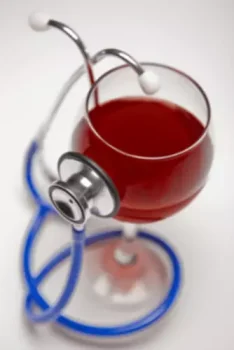
He obtained his medical best replica watches degree from West Virginia University where he also completed his residency training, finishing as chief resident. Dr. Wakim co-founded and served as the CEO of Transformations leading to a successful merger with Shore Capital in May 2021. He is purpose driven towards improving the standard of and removing stigma related to behavioral healthcare. Dr. Wakim enjoys golf, traveling and time spent with his two dogs, Lulu replica watches UK and Rayna. People with celiac disease, non-celiac gluten sensitivity, or a wheat allergy may need to steer clear of conventional beer. Rarely, severe pain after drinking alcohol is a sign of a more serious disorder, such as Hodgkin lymphoma.
Sensitivity to Other Components
For example, aged cheese, smoked meats, sauerkraut, wine, and replica Rolex beer tend to be high in histamines. In an ideal world, you would abstain from consuming alcohol completely. Alcohol intolerance is different to having a ‘low tolerance’ to alcohol.
When to speak with a doctor

Alcohol can cause a great level of discomfort if someone drinks it without being aware they have alcohol intolerance. Continuing to drink alcohol while knowing you are intolerant (or allergic) can also have severe health consequences. More replica cartier research is needed to understand its causes and treatment options. In the meantime, healthcare providers should take alcohol intolerance into account when evaluating and treating post-COVID symptoms. If trace amounts of any of the above compounds are consumed in a drink by someone with a sensitivity, they will develop symptoms. Alcohol allergies produce rashes, severe stomach cramps, and nausea.
Alcohol Use And Addiction Treatment Options

Often, what people consider to be an alcohol allergy is, in fact, alcohol intolerance. If you’re allergic to another ingredient contained in certain alcoholic products, switching to a different drink might be an option. In fact, your body replica rolex watches might have an inability to process other constituents of alcohol, such as histamine, yeast, grains, sulfites, or preservatives. In some cases, a healthcare professional will recommend an alcohol challenge test.
If a person develops a mild intolerance to alcohol or an ingredient in beverages, they may be able to manage it themselves simply by avoiding or limiting alcohol or certain drinks. Alcohol intolerance may cause a person to experience immediate reactions after they drink alcohol, or they may develop it hours after, the day after, or even later in life. A person may experience sickness after drinking alcohol due to an intolerance or sensitivity to an ingredient. It may also be a sign of a hangover or result of a lack of water or sleep. When we drink alcohol, an enzyme in our bodies called alcohol dehydrogenase (ADH) breaks it down into a Replica Watches Canada compound called acetaldehyde. Another enzyme, aldehyde dehydrogenase (ALDH), then turns acetaldehyde into non-toxic acetic acid (vinegar).
- Some types of sulfites might also trigger an asthmatic attack if you have asthma.
- If you’ve ever had an alcoholic drink only to find your nose running and your stomach roiling, you may have an alcohol intolerance.
- A compromised liver struggles to process alcohol efficiently, leading to adverse reactions after consumption.
- If people do not produce enough of this enzyme, they may not break down histamine efficiently, which may lead to intolerance symptoms.
- Continuing to drink alcohol while knowing you are intolerant (or allergic) can also have severe health consequences.
- Some people may find relief with diamine oxidase (DAO) supplements, which may assist your body in breaking down histamines.
- Distilling a drink usually removes any naturally occurring yeast or yeast by-products from the liquid.
- Avoidance of alcohol is the primary way to prevent the onset of these symptoms, as there is no cure for alcohol intolerance.
- With the right combination of treatments and therapies, freedom from alcohol addiction and the common complications posed by alcohol intolerance is possible.
The type of yeast used to ferment many alcoholic beverages and to make dough rise is known as brewer’s yeast or baker’s yeast. Gin, vodka, and whiskey are all made from gluten-containing grains such as wheat, rye, and barley. Unless gluten-containing flavorings are added after the distillation process, distilled spirits are considered gluten-free. The same applies to distilled alcohol made from wheat if you have a wheat allergy. Alcohol intolerance occurs when your body doesn’t have the proper enzymes to break down (metabolize) the toxins in alcohol. This is caused by inherited (genetic) traits usually found in Asians.
Additionally, over-the-counter antihistamines might alleviate mild symptoms but should be used cautiously and under medical advice. Managing alcohol intolerance involves making specific lifestyle changes to avoid triggering symptoms. Additionally, maintaining a healthy diet and staying hydrated can support overall well-being and reduce the impact of accidental alcohol exposure. For those who frequently attend events where alcohol is present, having a plan in place to manage social situations without consuming alcohol is essential.
- In some cases, a healthcare professional will recommend an alcohol challenge test.
- Research has shown that some people with mild symptoms of intolerance can get used to the symptoms of excess acetaldehyde in their bodies.
- Alcohol intolerance is a condition that can cause immediate, uncomfortable reactions after consuming alcohol.
- At The Recovery Village at Baptist Health, we provide a wide range of high-quality alcohol addiction recovery programs suited to your needs and lifestyle.
- Anyone who experiences severe allergy symptoms after consuming alcohol needs to seek emergency care.
If you have a stuffy nose but don’t experience other common symptoms, alcohol intolerance may not be the culprit. Beer and wine have high levels of histamine, and alcohol dilates the blood vessels in your nose. alcohol intolerance symptoms As a result, people with asthma are also more likely to experience nasal congestion after drinking alcohol. And if you have any sort of allergies, frequent alcohol consumption can worsen your symptoms.

Integrated care models that include collaboration among various health professionals are recommended for comprehensive management of alcohol-related health issues. These models address both the immediate symptoms of intolerance and the broader health implications of alcohol consumption. For individuals with severe cases of alcohol intolerance, effective medical management is crucial to mitigate symptoms and prevent complications. Individuals with alcohol intolerance can experience a range of discomforting symptoms after consuming alcohol.
An allergy to alcohol has a very different cause from alcohol intolerance. Someone with an alcohol allergy has an allergic reaction when exposed to alcohol or to a component of alcohol. Often, it is not actually an allergy to alcohol itself but to a component of the alcohol, like grapes or hops. The symptoms are caused because the body’s immune system becomes overactive and attacks something found in the alcohol. For mild intolerances, you should either avoid alcohol, limit how much you drink or avoid certain types of alcohol with ingredients that may cause a reaction.
Sin respuestas